Introduction
When a person experiences constipation, they have trouble passing stool. Along with other symptoms, it can also result in pain, bloating, and nausea. Home remedies and medical therapies may be helpful, depending on the cause. Stool going through the colon excessively slowly is one of the many causes of constipation. Harder feces result from the colon absorbing more water as food passes through the intestinal tract more slowly.
Constipation can occasionally be caused by an obstruction within the small or large intestines. Someone in this situation requires immediate medical assistance. Other instances, it might be brought on by insufficient water or fiber.
Sign And Symptoms
Constipation’s primary signs and symptoms are:
- Having trouble pooping
- Stiff, dry, or lumpy stools
- Putting effort on removing feces
- Less feces than usual being passed
- Not having three or more bowel motions Every week
Additional signs and symptoms include:
- Nausea
- Experiencing bloating
- A decrease in appetite
- Cramps and discomfort in the abdomen
Causes of Constipation
The primary function of your colon is for absorbing water from leftover food as it moves throughout your digestive system. The result is stool, or waste. Eventually, the colon’s muscles push the waste out through the rectum in order to be eliminated. Stool can get tough and challenging to pass if it stays in the colon for an extended period of time. Constipation is often caused by poor eating. To maintain soft stools, consume enough water and dietary fiber.
Plant based foods are typically high in fiber. There are actually two kinds of fiber: soluble and insoluble. As soluble fiber moves through the digestive system, it dissolves in water and turns into a soft, gel-like substance. When insoluble fiber passes through the digestive system, it mostly keeps its shape. Both types of fiber combine with stool to make it softer and heavier overall. As a result, passing through the rectum is much simpler.
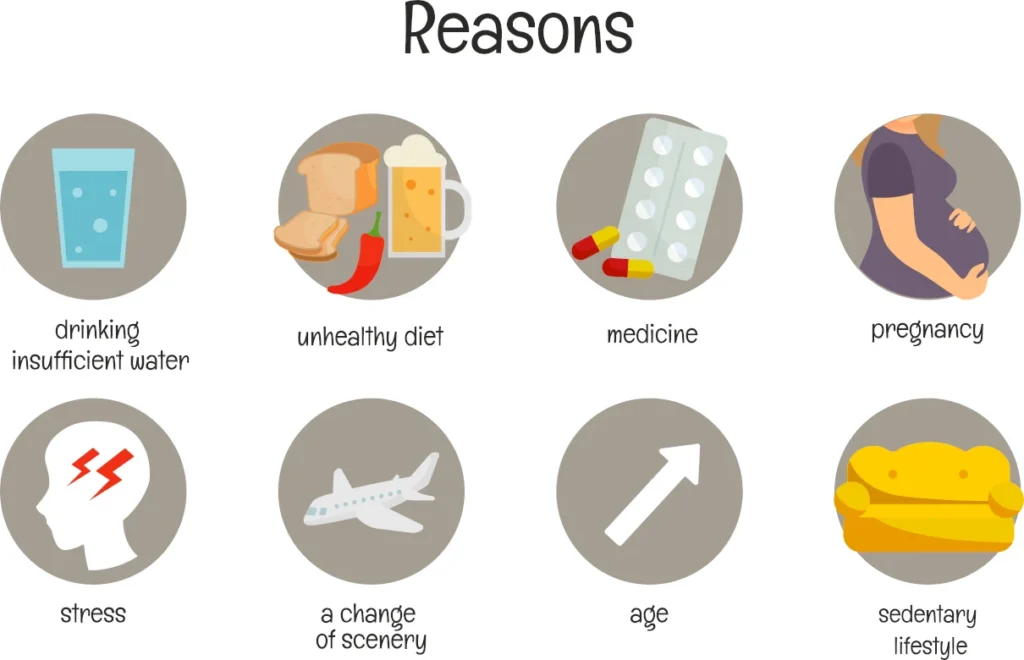
Primary Causes
Constipation can also result from stress, schedule disruptions, and illnesses that inhibit colon muscle contractions or suppress the urge to urinate. Among the common reasons for constipation are:
- Pregnancy
- Hydration deficit
- Minimal levels of exercise
- Postponing the want to go to the bathroom
- Travel or other alterations to the daily schedule
- Diets poor in fiber, especially those heavy in dairy, cheese, or meat
- Elder age (about one-third of those over 60 suffer from constipation)
- Drugs, such as certain antacids, pain relievers, diuretics, and Parkinson’s disease therapies
Underlying Medical Conditions
Constipation may result from the following underlying medical disorders:
- Abuse or overindulgence in laxatives
- Certain illnesses, including diabetes, Parkinson’s disease, and stroke
- Hormonal issues, such as a thyroid gland that is not working properly
- Issues relating to the colon or the rectum, such as diverticulosis, IBS, or intestinal blockage
Physical Inactivity
Constipation can also result from inadequate exercise or from a lack of physical activity. The precise reason why constipation can result from insufficient physical exercise is unknown to researchers. But they think it might be because exercise facilitates the passage of feces through the colon.
Certain Medications
Constipation may become more likely when taking certain drugs. Among them are:
- Diuretics
- Antagonistic
- Antispasmodic
- Anticonvulsants
- Narcotic analgesics
- Blockers of calcium channels
- Antacids with aluminum and calcium in them
If someone thinks that a medicine they are taking might be the cause of their constipation, it is advisable for them to speak with a doctor.
Constipation in Babies And Infants
Babies and infants can experience constipation occasionally. A infant may have Hirschsprung’s disease if they fail to pass meconium, the initial solid stool, after 48 hours of delivery. This is a disorder where a portion of the large intestinal tract lacks certain nerve cells. A backup occurs when the colon’s afflicted section is incapable for stool to pass through.
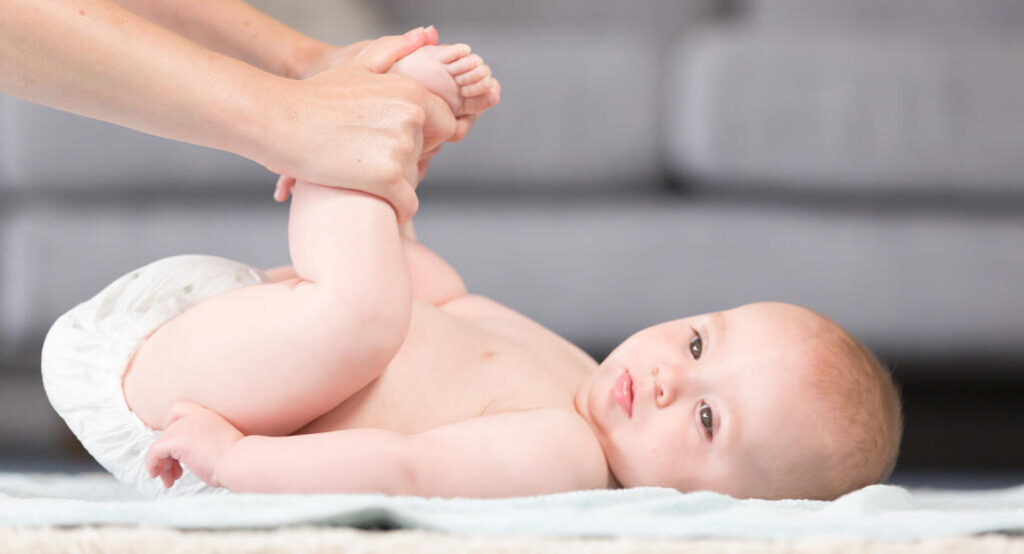
Usually, a medical expert can identify these symptoms and suggest surgery as a course of action. Generally speaking, newborns born with this disease have a favorable prognosis. Constipation is a possibility in young infants:
- While weaning
- When learning to use a toilet
- During stressful periods, including when a person starts school
Complications
If your bowel movements are not regular and soft, you may encounter several problems. Among the difficulties are:
- Hemorrhoids are enlarged, irritated veins in your rectum
- Much excrement accumulated in your rectum as well as anus (fecal impaction)
- Anal fissures are tears in the inner layer of your anus caused by hardened stool attempting to pass through
- A disease called diverticulitis that affects pouches (diverticula) that occasionally grow off the wall of your colon due to stool that has become stuck and inflamed
- Struggling to move your stool can cause injuries to the muscles of the pelvic floor. These muscles support a variety of functions, including bladder control. Urine leakage from the bladder can result from prolonged and excessive exertion (stress urinary incontinence)
Diagnosis
It could be time to visit a healthcare provider if your constipation doesn’t go away or if you have questions regarding your symptoms. A medical expert:
- May perform a physical assessment, which can involve a rectal examination
- May perform blood tests to assess thyroid function, electrolytes, and blood count
- Will enquire about your health history, medications, and any underlying issues in addition to your symptoms
In order to determine the reason behind your symptoms, they might advise further testing. Tests could consist of the following:
- Colonoscopy
- Marker research
- X-ray Barium enema
- Anorectal manometry
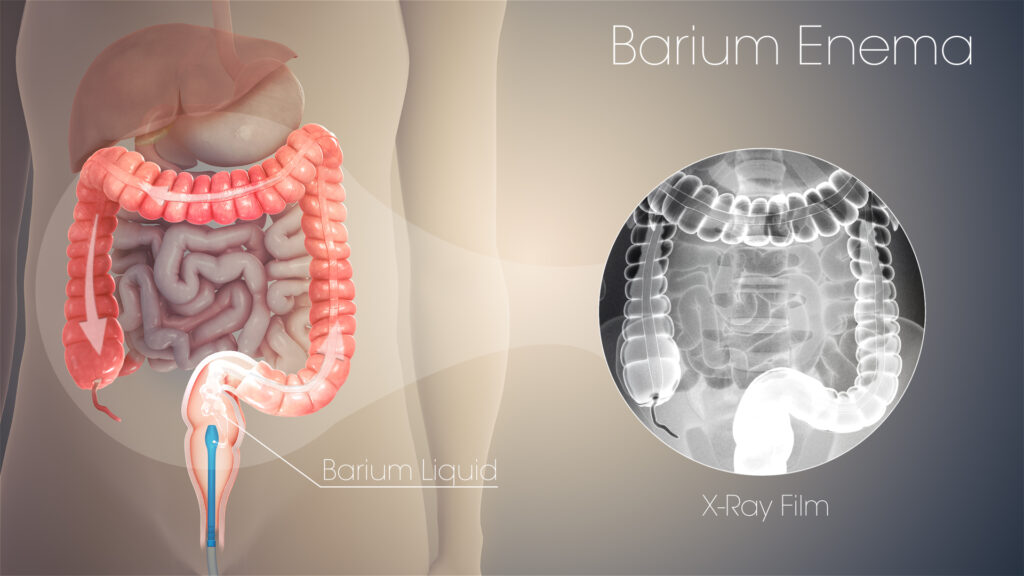
Treatment
Most mild to severe instances of constipation can be treated at home. Conducting modifications to your diet and drink after conducting an inventory is the first step towards practicing self-care. Here are some suggestions for providing quick relief from constipation at home:
- Move and engage in exercise
- Make a note of the items that make you constipated in your food journal
- Examine your toileting technique. Pooping might be simpler if you kneel, raise your feet, or lean back
- Consume high-fiber foods such as oranges, pineapples, berries, mangoes, avocados, papaya and bran cereal in addition to prunes
- Steer clear of fried foods, processed meats, and refined carbohydrates like potatoes, spaghetti, and white bread. Lean meats, such as chicken, and low-fat dairy items are good
- Include whole grains, fruits, vegetables, as well as other high-fiber foods like Chia seeds include in your diet on a regular basis. Limit the amount of high-fat items you eat, such as eggs, cheese, and pork
- Sip an additional two to four glasses of water each day. Steer clear of alcohol and beverages high in caffeine as these can dehydrate you. Avoid juice and beverages with a lot of sugar as well
Medications
Constipation can be treated with a few prescription medications. Among them are:
- Lactulose
- Linaclotide
- Plecanatide
- Prucalopride
- Lubiprostone
Based on the findings of your tests, your healthcare professional will select the medication that may be most effective for you.
Surgery
Constipation is rarely treated with surgery. However, if constipation is being brought on by a structural issue with your colon, your doctor can suggest surgery. These issues include, for instance:
- A rupture in the anal fissure
- An intestinal obstruction, or obstruction in your colon
- An intestinal stricture, or narrowing, in a section of your intestine
- Rectal prolapse is the term for the partial collapse of the rectum into your vagina
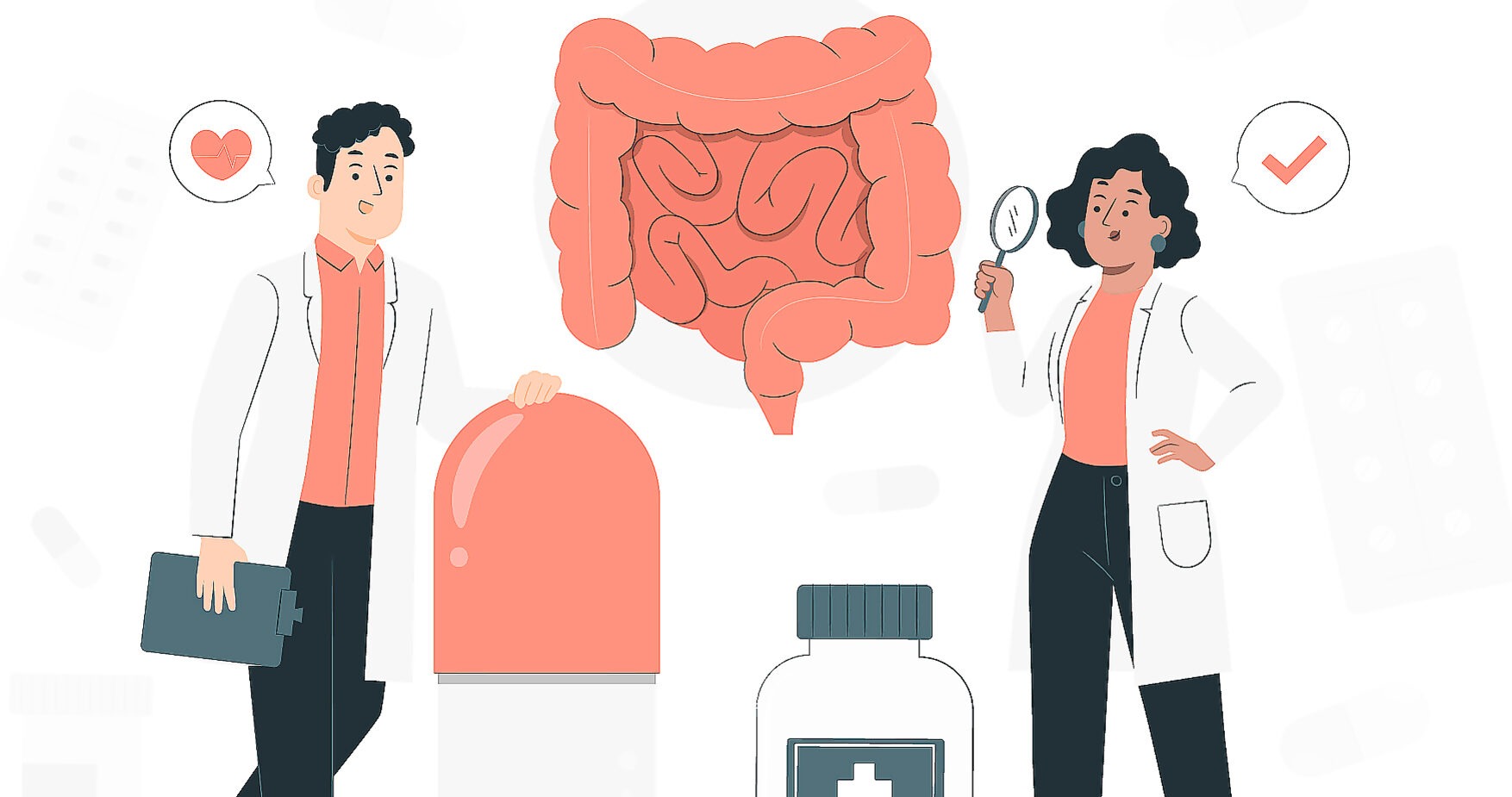
Surgery may be used to address certain causes of constipation due to outlet dysfunction. It is advisable to talk about this after testing. If a colonoscopy indicates carcinoma in your colon, rectum, or anus, you might also require surgery.
Other Options
Other tactics that could be useful are:
- An enema
- Surgery to clear the obstruction
- Extended care for a persistent ailment, such IBS
- A method of physically eliminating excrement to offer relieve
- One useful tool for helping someone retrain their muscles is biofeedback treatment

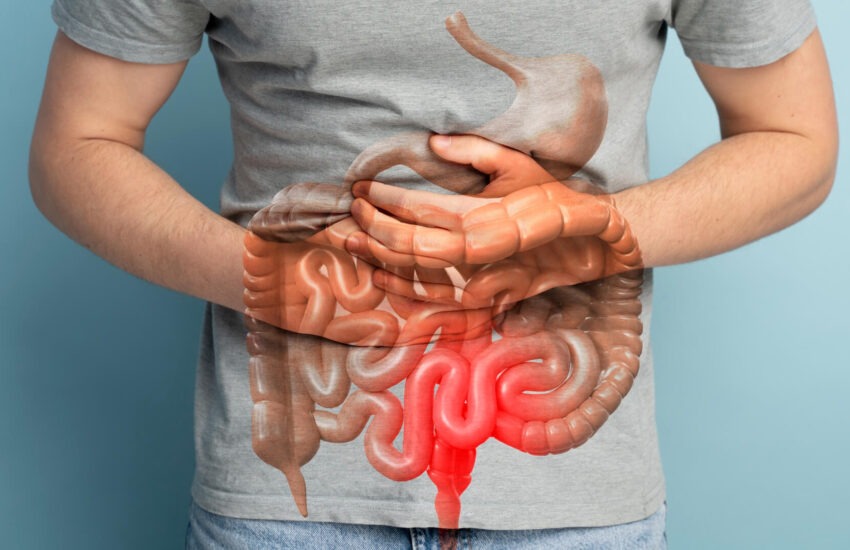
Как выбрать качественные винтовые сваи 57 мм: на что обратить внимание
свая винтовая для забора 57 https://vintovaya-svaya-57-mm.ru .
New UK Online Casinos: The Ultimate Guide
best online gambling sites uk best online gambling sites uk .